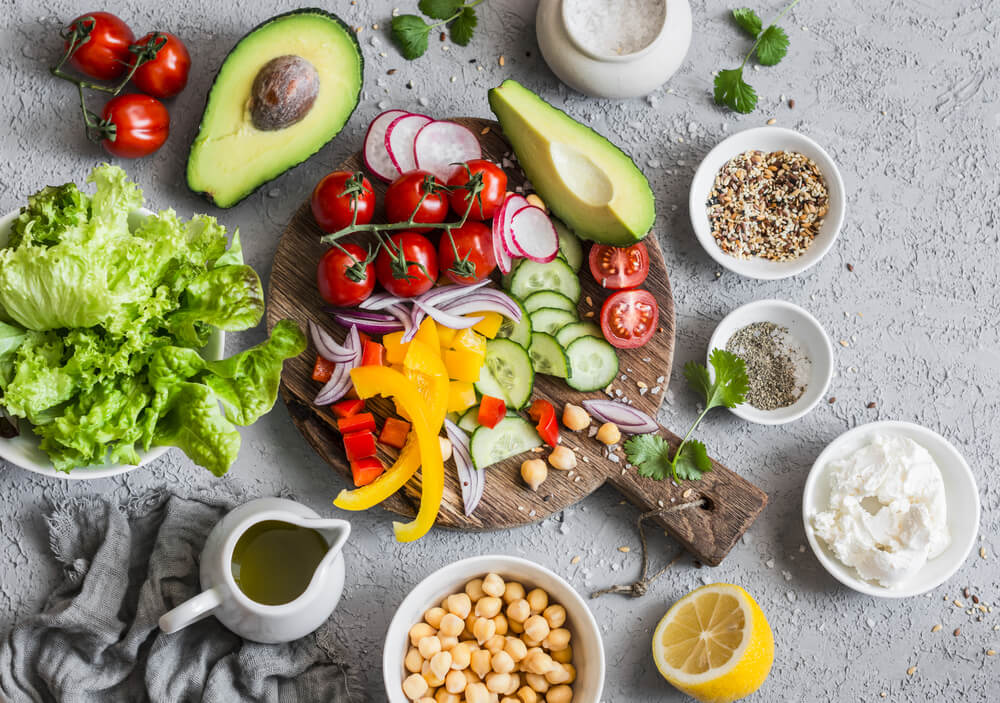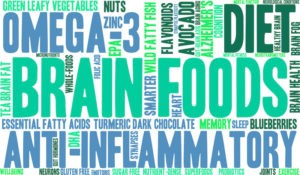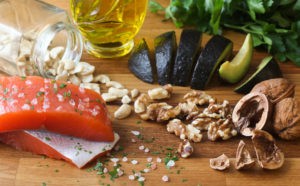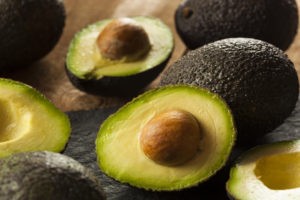Best Foods To Help Fight Inflammation

Inflammation is your immune system’s reaction to irritation, injury, or infection. Your immune system becomes activated when your body recognizes anything that is foreign—such as an invading microbe, plant pollen, or chemical — which often triggers inflammation.
Inflammation is normal and a natural part of healing. However, chronic inflammation could have a negative impact on your body and your health. Many major diseases, such as cancer, heart disease, diabetes, arthritis, depression, and Alzheimer’s, have been linked to chronic inflammation.
The good news is following an anti-inflammatory diet is one way to counter chronic inflammation that may be caused by eating an unhealthy diet and lifestyle. Thus, by eating healthy, anti-inflammatory foods you can naturally prevent or alleviate the symptoms of inflammation. These foods are not only nutritious, they fit perfectly into an anti-inflammatory diet.
In our new blog, NJdiet will discuss the topic of inflammation, and also share the best, more effective ways to help fight inflammation in order to contribute to better, overall health!
Defining Inflammation
There are two types of inflammation – chronic and acute. While acute inflammation is a natural immune response to common symptoms and injuries, chronic inflammation can trigger a whole host of health-related issues. In fact, a common denominator with many diseases, from arthritis to heart disease, is chronic inflammation.
To be sure, chronic inflammation is not healthy, so every effort should be made to prevent or reduce it. This can begin by eating healthy, anti-inflammatory foods in order to naturally prevent or alleviate the symptoms of inflammation.
Possible Dietary Causes Of Inflammation
Certain lifestyle factors or unhealthy habits can promote inflammation. For example, consuming high amounts of sugar and high-fructose corn syrup is particularly harmful, leading to insulin resistance, diabetes, and obesity.
Additionally, it is believed that consuming too many refined carbs, such as white bread or rice, may contribute to inflammation, insulin resistance, and obesity.
Similarly, eating processed and packaged foods that contain trans fats has been shown to promote inflammation and damage your arteries. Regular consumption of vegetable oils used in many processed foods may result in an imbalance of omega-6 to omega-3 fatty acids, which some scientists believe may promote inflammation.
Finally, it should be noted that an inactive, sedentary lifestyle is a major non-dietary factor that can promote inflammation.
Some foods are associated with an increased risk of chronic inflammation are:
- Sugary beverages: Sugar-sweetened drinks and fruit juices
- Refined carbs: White bread, white pasta, etc.
- Desserts: Cookies, candy, cake, and ice cream
- Processed meat: Hot dogs, bologna, sausages, etc.
- Processed snack foods: Crackers, chips, and pretzels
- Certain oils: Processed seed and vegetable oils like soybean and corn oil
- Trans fats: Foods with partially hydrogenated ingredients
- Alcohol: Excessive alcohol consumption
The Benefits Of An Anti-Inflammatory Diet
To reduce levels of inflammation, aim for an overall healthy diet. If you’re looking for an eating plan that closely follows the tenets of anti-inflammatory eating, consider the Mediterranean diet, which is high in fruits, vegetables, nuts, whole grains, fish, and healthy oils.
In addition to lowering inflammation, a more natural, less processed diet can have noticeable effects on your physical and emotional health. In fact, a healthy diet is beneficial not only for reducing the risk of chronic diseases, but also for improving mood and overall quality of life.
Best Food To Help Fight Inflammation
While chronic inflammation is unhealthy and can lead to disease, in many cases, your diet and lifestyle drives inflammation or makes it worse.
Delicious and healthy foods may help improve your overall health and make it easier to manage a healthy weight, and a diet rich in anti-inflammatory foods may also help prevent certain health conditions from occurring as you age.
Thus, you should aim to choose these anti-inflammatory foods for optimal health and wellbeing, lowering your risk of disease and improving your quality of life!
Almonds:
Vitamin E is best known for protecting the body from harmful free radicals and has been shown to reduce inflammation. What’s more, almonds are an excellent source of vitamin E and make an excellent snack!
Almonds are an excellent source of monounsaturated fats, and are a good source of magnesium and plant protein. Research shows that eating almonds has been associated with having a lower risk of cardiovascular disease.
Avocados:
Avocados are high in fiber and anti-inflammatory fat content. They also contain high amounts of potassium, magnesium, carotenoids and tocopherols. Avocados are also rich in heart-healthy monounsaturated fats, plus they’re an excellent source of magnesium, fiber, and potassium while being low in sodium. Eating half an avocado will also add nicely to your daily intake of vitamins C, A, E, and B-complex vitamins.
Broccoli:
There is a strong link between magnesium deficiencies and inflammation, and broccoli has a whopping 51 mg of magnesium per cup, making it essential in an anti-inflammatory diet.
Broccoli is a member of the cruciferous family of vegetables that are high in antioxidants. Broccoli is also an excellent source of vitamin C, potassium, calcium, and vitamin A, all while being low in calories.
Blueberries:
Blueberries contain significant amounts of polyphenols that trigger antioxidant activity and may help to prevent cancer and cardiovascular disease. These compounds may help reduce inflammation while also boosting your overall immunity. Blueberries may also prevent cancer by slowing down the growth of cells and reducing inflammation.
Bone Broth:
Bone broth is a huge part of an anti-inflammatory diet. Bone broth contains chondroitin and glucosamine, two compounds shown to reduce inflammation specifically related to joint pain.
Carrots:
Carrots contain beta-carotene, which your body can convert to vitamin A, which is essential for your health and is a powerful antioxidant. Carrots also contain zeaxanthin and lutein, which are also related to vitamin A. Eating a diet rich in these antioxidants may help to reduce your risk of cancer by preventing damage to the healthy cells of your body.
Dry Beans:
Dry beans, such as navy beans, kidney beans, pinto beans, and black beans, are an excellent anti-inflammatory source of plant protein, minerals, B-complex vitamins, and vitamin K. Research suggests dry beans may provide health benefits and help prevent some types of heart disease, diabetes, high blood pressure, as well as reduce inflammation.
Extra-Virgin Olive Oil:
Extra-virgin olive oil is rich in monounsaturated fats that are good for your blood vessels and has polyphenols that work as antioxidants to protect the cells in your body. Olive oil helps reduce inflammation, reduces high cholesterol, and can reduce your risk of heart disease.
Green Tea:
Green tea is rich in catechins which protects your cells from damage leading up to disease. High-quality tea – preferably matcha – is most beneficial, and using the most effective brewing technique can extract the catechins.
Kale:
Research has shown that kale contains around 45 different inflammation fighting flavonoids, and is an excellent source of vitamins A, C, and K, and a good source of calcium, iron, magnesium, potassium, and vitamin C while being low in sodium.
Oranges:
Oranges and orange juice are excellent additions to an anti-inflammatory diet! Oranges are an excellent source of vitamin C and potassium, and the fiber and folate in oranges may help keep your heart healthy, and vitamin C is essential for immune system function, strong connective tissue, and healthy blood vessels.
Salmon:
Salmon is considered the best fish for one of the most vital anti-inflammatory substances — omega-3 fatty acids. Studies suggest people who have a higher intake of these fatty acids may be less likely to suffer from dry eyes, and it’s also good for the heart because the healthy fats help reduce inflammation and keep cholesterol in check.
The American Heart Association suggests you eat fatty fish at least twice a week because of the beneficial omega-3s.
Spinach:
Spinach contains lutein, which is related to vitamin A and beta-carotene. Spinach also gives you iron, vitamin K, and folate, and it is very low in calories, so it’s perfect for weight loss diets.
Strawberries:
Strawberries are delicious and good for your health. Strawberries are low in calories, high in fiber, and they contain vitamins and minerals your body needs. They also have anti-inflammatory properties and plenty of potential health benefits. The pigments that give the strawberries their color also contain antioxidants that can help reduce inflammation.
Sweet Potatoes:
Sweet potatoes are rich in vitamins and minerals and are high in vitamin A and beta-carotene, which are antioxidant. Sweet potatoes also are an excellent source of many vitamins and minerals, including vitamins C and K, potassium, and B complex vitamins.
Walnuts:
Walnuts are an excellent source of healthy fats, protein, vitamin E, minerals, and phytochemicals called sterols. They also contain monounsaturated fatty acids and omega-3 fatty acids that are good for your heart. Even though walnuts are higher in calories, eating a handful of walnuts can help you feel full longer and actually help you lose weight.
* * *
As you can see, in order to reducing levels of inflammation, aim for an overall healthy diet. A diet rich in anti-inflammatory foods may also help prevent certain health conditions from occurring as you age.
An added benefit of adding these anti-inflammatory, healthy foods into your diet is that it make it easier to manage a healthy weight. In addition to lowering inflammation, a more natural, less processed diet can have noticeable effects on your physical and emotional health. A healthy diet is beneficial not only for reducing the risk of chronic diseases, but also for improving mood and overall quality of life!










